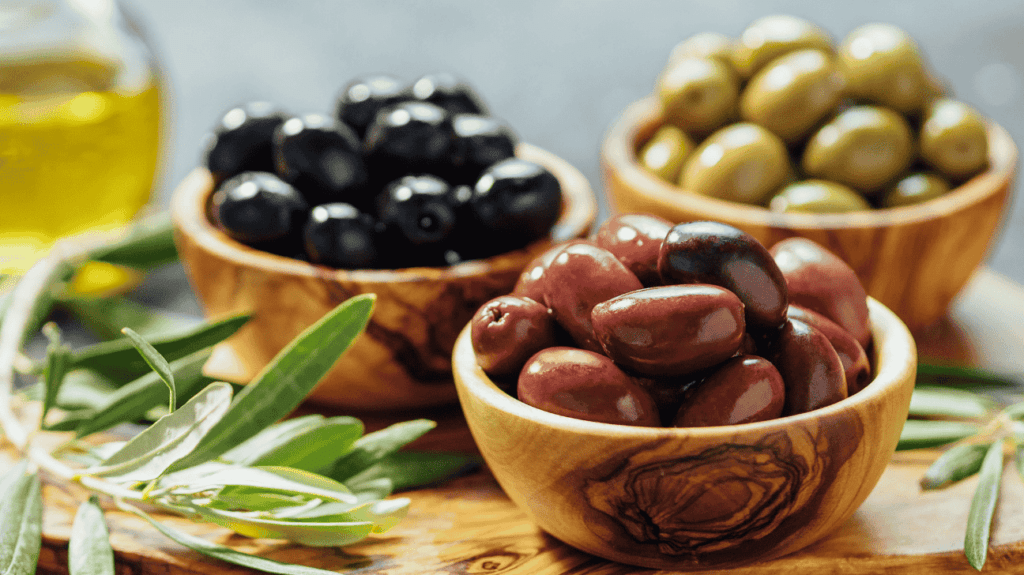The olive tree (Olea europaea) has held a revered place in cultural and medical traditions across the Mediterranean region and beyond. Olive fruit and its derivatives, such as olive oil and olive leaf extract, have been explored extensively for their health-promoting properties. More recently, components derived from the olive tree have gained attention for their potential cognitive-enhancing, or nootropic, effects.
This article delves into the science behind olive-based supplements, highlighting their chemistry, physiological mechanisms, potential nootropic benefits, dosing considerations, side effects, interactions, and essential guidelines for safe usage.
YouMay Also Like:
Olive: Potential Nootropic Benefits, Dosage, Side Effects, Interactions, and Other Important Information About This Supplement is an original (NootropicsPlanet) article.
Sources and Key Components of Olive-Based Supplements
The olive tree produces numerous bioactive compounds, including polyphenols, terpenes, and sterols, which contribute to its various health benefits. Olive oil, the primary product from olive fruits, is a rich source of monounsaturated fats and polyphenolic compounds that have shown potential in supporting cardiovascular, metabolic, and cognitive health. Olive leaf extract (OLE) is another popular supplement, known for its concentrated polyphenolic content, particularly oleuropein and hydroxytyrosol, which have demonstrated antioxidant, anti-inflammatory, and potential nootropic effects in scientific studies.
- Olive Oil: Widely recognized for its health benefits, olive oil is primarily composed of monounsaturated fatty acids, especially oleic acid, alongside antioxidant polyphenols such as oleocanthal and hydroxytyrosol.
- Olive Leaf Extract (OLE): Often consumed in supplement form, OLE is rich in oleuropein, which has been associated with improved cardiovascular and cognitive health in various studies.
- Olive Fruit and Other Derivatives: Some supplements include whole olive fruit extract, which contains a mixture of beneficial compounds, including vitamins, minerals, and polyphenols. This combination provides a synergistic effect, enhancing the bioavailability and efficacy of olive-based supplements.
Boost your brain health and enhance focus with Olives —Unlock your potential, Shop Now on Amazon!

Chemistry and Physiological Mechanisms of Olive-Derived Compounds
The chemical structure of olive-based polyphenols such as oleuropein and hydroxytyrosol allows these compounds to interact with various physiological systems in the human body, particularly through antioxidant and anti-inflammatory pathways. Below, we explore the mechanisms by which olive compounds contribute to cognitive health.
- Antioxidant Defense: Olive polyphenols neutralize reactive oxygen species (ROS) and reduce oxidative stress, which is particularly relevant to brain health, as the brain is highly susceptible to oxidative damage. Hydroxytyrosol, in particular, has demonstrated high free radical-scavenging capacity, helping to protect neural tissues and potentially slow cognitive decline.
- Anti-Inflammatory Effects: Inflammation plays a significant role in neurodegenerative diseases and cognitive decline. Oleuropein and other olive polyphenols have been shown to inhibit pro-inflammatory cytokines and modulate immune responses, contributing to reduced neuroinflammation and supporting cognitive health.
- Enhanced Mitochondrial Function: Oleuropein and hydroxytyrosol may enhance mitochondrial efficiency, improving the production of adenosine triphosphate (ATP), which is critical for energy-demanding processes in the brain. By supporting mitochondrial function, olive-based supplements may help sustain cognitive processes such as memory, learning, and concentration.
- Neuroprotective Mechanisms: Certain olive polyphenols are thought to protect against neuronal apoptosis (cell death) and support neurogenesis (formation of new neurons), which may have implications for the prevention of age-related cognitive decline and neurodegenerative diseases like Alzheimer’s.

Nootropic Benefits of Olive-Based Supplements
Given the above mechanisms, olive-derived compounds may offer multiple nootropic benefits, primarily through their effects on cognitive resilience, neuroprotection, and overall brain health. Research into the specific cognitive-enhancing properties of olive-based supplements is ongoing, yet current evidence highlights several areas where these compounds could be beneficial.
- Improved Memory and Learning: Animal studies have shown that oleuropein may improve memory and learning abilities, likely due to its antioxidant and anti-inflammatory actions. By supporting mitochondrial function and enhancing neurotransmission, olive-derived compounds could contribute to improved recall and learning outcomes in humans.
- Protection Against Age-Related Cognitive Decline: The neuroprotective properties of hydroxytyrosol and oleuropein may slow the progression of neurodegenerative diseases. By reducing oxidative stress and inflammation, these compounds help maintain neural health, supporting memory retention and cognitive clarity as individuals age.
- Enhanced Focus and Mental Clarity: The potential for olive-derived polyphenols to improve blood flow and reduce mental fatigue may enhance focus and cognitive performance. Although the exact mechanisms remain under study, these effects are thought to stem from olive compounds’ role in supporting brain energy metabolism and cellular function.
- Mood Regulation: Emerging evidence suggests that olive polyphenols may impact mood by modulating neurotransmitter levels and reducing systemic inflammation, factors that contribute to mood disorders such as depression. As a result, olive-based supplements may indirectly support cognitive performance by stabilizing mood and reducing symptoms of mental fatigue.
- Support for Sleep and Restorative Rest: Sleep is crucial for memory consolidation, cognitive function, and overall brain health. Research has indicated that certain olive polyphenols may improve sleep quality by regulating the body’s stress response and reducing systemic inflammation. Better sleep can lead to enhanced cognitive function, quicker mental recovery, and improved memory retention, making olive-based supplements a potential aid for improving rest and cognitive restoration.

Dosage and Supplementation Guidelines
The optimal dosage for olive-derived supplements varies depending on the specific formulation and intended health outcomes. Below, we discuss recommended dosages for olive oil and olive leaf extract, along with general guidelines for safe supplementation.
- Olive Oil: For general health benefits, the Mediterranean diet recommends consuming 20–40 mL of extra virgin olive oil daily, which provides an ample supply of monounsaturated fats and polyphenols. For cognitive benefits, some studies suggest a minimum intake of 25 mL per day, although more research is needed to confirm the ideal dosage for nootropic effects.
- Olive Leaf Extract (OLE): OLE is typically taken at doses ranging from 500 mg to 1,000 mg daily, standardized to contain 20% oleuropein. For nootropic benefits, some studies have used up to 500 mg of oleuropein-rich extracts, but it is advisable to begin with lower doses and gradually increase as tolerated.
- Supplement Forms: Olive-derived compounds are available in various forms, including capsules, soft gels, tinctures, and oils. It is essential to choose high-quality supplements, as the bioavailability and potency of olive polyphenols can vary significantly among products.
Side Effects and Safety
Olive-based supplements are generally considered safe when consumed in recommended doses. However, individuals may experience side effects, particularly when taking high concentrations or when starting supplementation.
- Gastrointestinal Discomfort: Some individuals may experience digestive symptoms such as nausea, diarrhea, or stomach upset, especially with high doses of OLE or olive oil. It is advisable to start with a lower dose and gradually increase it to minimize digestive discomfort.
- Hypotension (Low Blood Pressure): Olive polyphenols may lower blood pressure, which is beneficial for many but could be problematic for individuals prone to hypotension. Those with low blood pressure or on antihypertensive medications should use olive-based supplements with caution.
- Allergic Reactions: Although rare, allergic reactions to olive extracts have been reported. Symptoms may include skin rash, itching, or swelling, especially in individuals with sensitivities to other plants in the Oleaceae family.
- Other Mild Side Effects: Some people may experience mild headaches, dizziness, or fatigue, particularly when taking high doses of olive leaf extract. These side effects are typically transient and can be reduced by lowering the dosage.

Drug Interactions and Other Precautions
Interactions with other supplements or medications should be carefully considered when taking olive-based supplements. Certain drugs may interact with olive compounds, altering their efficacy or posing risks to health. Here are some key considerations.
- Blood Pressure Medications: Since olive polyphenols can reduce blood pressure, individuals on antihypertensive medications should be cautious with olive-based supplements, as concurrent use may lead to an excessive drop in blood pressure.
- Anticoagulant and Antiplatelet Drugs: Olive oil and OLE may have mild anticoagulant properties. Individuals taking blood thinners, such as warfarin or aspirin, should consult a healthcare provider before starting olive-based supplements to avoid increased bleeding risk.
- Cholesterol-Lowering Medications: Olive oil may lower LDL cholesterol levels, a benefit that could be additive when used with cholesterol-lowering drugs. However, combining these could occasionally lead to excessively low cholesterol levels, warranting monitoring.
- Immunosuppressive Drugs: Since oleuropein has mild immune-boosting properties, it may theoretically reduce the effectiveness of immunosuppressive drugs. Individuals on medications for autoimmune conditions or organ transplants should seek medical advice before taking OLE.
- Potential Interactions with Other Nootropics: When combined with other cognitive enhancers like caffeine, L-theanine, or racetams, olive-based supplements may offer synergistic effects. However, individuals should start with conservative doses to gauge tolerance and prevent overstimulation or nervousness.
Risks for Individuals with Specific Health Conditions
While olive-based supplements are safe for the general population, certain individuals may need to exercise caution or avoid them entirely.
- Diabetes: Olive oil may improve insulin sensitivity, which is beneficial for many individuals. However, those on antidiabetic medications should monitor their blood sugar levels closely, as olive compounds could enhance the effects of these medications, potentially leading to hypoglycemia.
- Pregnancy and Breastfeeding: Although olive oil is commonly consumed during pregnancy and breastfeeding as part of a balanced diet, the concentrated doses found in supplements, especially OLE, have not been studied thoroughly in pregnant or breastfeeding women. Consulting a healthcare provider is recommended for those in these categories.
- Kidney Disease: Olive leaf extract contains compounds that can affect kidney function in large doses. Those with kidney disorders or who are taking medications that impact kidney function should consult a healthcare provider before using olive-based supplements.
Conclusion: Is Olive a Viable Nootropic Option?
Olive-derived compounds, particularly oleuropein and hydroxytyrosol, offer promising nootropic benefits. These compounds support brain health by combating oxidative stress, reducing inflammation, and promoting neurogenesis. They hold potential not only for improving memory and cognitive performance but also for protecting against age-related cognitive decline and neurodegenerative diseases.
While research is still in its early stages, the preliminary evidence is encouraging. For individuals seeking a natural supplement to enhance brain health, olive-based products represent a safe and potentially effective option. However, as with any supplement, it is essential to consider potential interactions with medications, start with lower doses, and consult with a healthcare provider before incorporating them into a daily routine.
In summary, olive is more than just a culinary ingredient—it is a versatile, health-boosting supplement that may offer nootropic benefits and support cognitive health as part of a balanced lifestyle.

References:
- Health Benefits of Olive Leaf Extract. Retrieved from: https://www.webmd.com/diet/health-benefits-olive-leaf-extract
- Olives 101: Nutrition Facts and Health Benefits. Retrieved from: https://www.healthline.com/nutrition/foods/olives
- Health Benefits of Olives. Retrieved from: https://www.webmd.com/diet/health-benefits-olives
- 7 Reasons Why Olives Are Healthy for You. Retrieved from: https://health.clevelandclinic.org/are-olives-good-for-you
- Table olives and health: a review. Retrieved from: https://pmc.ncbi.nlm.nih.gov/articles/PMC7737178/
Important Note: The information contained in this article is for general informational purposes only, and should not be construed as health or medical advice, nor is it intended to diagnose, prevent, treat, or cure any disease or health condition. Before embarking on any diet, fitness regimen, or program of nutritional supplementation, it is advisable to consult your healthcare professional in order to determine its safety and probable efficacy in terms of your individual state of health. Regarding Nutritional Supplements Or Other Non-Prescription Health Products: If any nutritional supplements or other non-prescription health products are mentioned in the foregoing article, any claims or statements made about them have not been evaluated by the U.S. Food and Drug Administration, and such nutritional supplements or other health products are not intended to diagnose, treat, cure, or prevent any disease.


